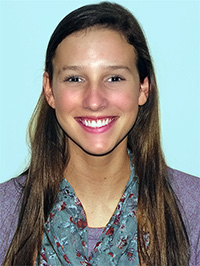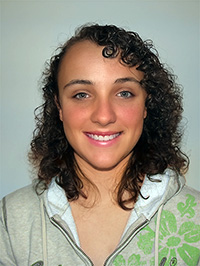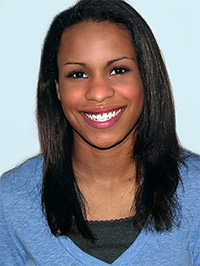Why do some students struggle with learning and completing tasks?
Page 1: Characteristics of Successful and Struggling Learners
Did You Know?
Of students with learning disabilities, 74.8% of them spend 80% or more of their day in the regular classroom and 19.4% spend 40%–79% of their day in the regular classroom.
44th Annual Report to Congress (2022)
An increasing number of students with disabilities today receive instruction in the general education classroom. Many of these students, particularly those with learning disabilities (LD) and attention deficit hyperactivity disorder (ADHD), struggle academically. This is especially the case when they encounter the academic demands of high school: large amounts of information presented in textbooks and during lectures in addition to homework assignments, projects, and papers for multiple classes. Though their teachers might provide supports, such as study guides, many students continue to find the challenge of so much content, lengthy lectures, and difficult reading assignments to be overwhelming. Too often the response of teachers is to conclude that these students are not trying hard enough, don’t care about school work, or are simply lazy. Danette Waites, who portrays Ms. Flemming in the Challenge video, oversees programs for high school students with disabilities. Below she discusses such often-incorrect assumptions that teachers make about students who are struggling. Next, Erin and Kyra, both of whom have struggled academically, discuss how hard they worked even if their effort was not always evident in their assignments or on tests.

Danette Waites, Director
Learning Enhancement Programs
Lipscomb High School
Nashville, TN
(time: 0:49)
Transcript: Danette Waite
I have teachers coming to me all the time talking about their students who are lazy. They appear that they aren’t putting forth any effort in class, that they’re not paying attention in class. So the teachers can be very frustrated with their students. I think it’s very important for teachers to not make assumptions that it is a personality thing or they’re lazy. We have to be very careful because right now we see a lot of students who have very poor self-esteem as far as academics are concerned, and we have numerous students who are calling themselves stupid and really don’t think they can do it. But when things are put in place that will help them specifically, they are making great strides and are very successful.
Transcript: Erin
As I entered high school, at first it wasn’t really a problem. I made straight A’s freshman year. And then sophomore year came around, and the work got a little harder but not bad. I ended up with a couple B’s, but still nothing really that anyone noticed that bad. But junior and senior year, as the classes really got hard, I entered the advanced placement classes, and everything just kind of fell apart. I wasn’t able to keep up with the classes. The kids that I had been in class with all along, they excelled and they still made straight A’s, whereas my grades started to drop to C’s and D’s, and no one could understand why because nothing had changed about me. It was very frustrating for me because I didn’t know how to change it because they were doing better than I was, but from my perception we were putting in the same amount of work. So I thought. I mean, we were studying the same amount of hours, but it wasn’t working for me like it was for them.
Transcript: Kyra
Schoolwork is usually harder for me than most people, so it just takes me longer to learn everything. I struggle in chemistry and algebra II. I spend a lot of time studying for tests, particularly algebra II. It’s my hardest subject. In algebra II, I spend at least two hours or more getting ready or preparing. If I have a test that week, it is every night, but if I don’t have a test that week it’d usually be an hour just on homework. I want teachers to understand that even if I’m failing, I’m still trying my hardest even though my grades don’t show it. It’s just hard for me to understand the material, and it takes me longer to get my grades where they’re supposed to be.
One reason that students struggle, despite their hard work and effort, is because they have difficulties with executive functions, the cognitive processes that control and coordinate activities related to learning. Executive functioning is not the same as intelligence. Even students who are quite intelligent might experience difficulties with executive function processes related to learning, such as:
- Processing information
- Retaining and recalling information
- Organizing materials and managing time
- Selecting, monitoring, and using effective learning and study strategies
 These executive function processes are highly related to study skills strategies and subsequent academic success. They are especially crucial when students are required to complete large multifaceted tasks, such as research papers or end-of-unit projects that necessitate the organization and coordination of multiple activities. For successful students, many of the skills required to succeed academically come naturally and automatically. That is, without having to think about it too much, this type of learner is capable of acting strategically in their approach to learning and completing assignments. On the other hand, students with learning difficulties tend to lack this ability. They often struggle with tasks that require executive functions.
These executive function processes are highly related to study skills strategies and subsequent academic success. They are especially crucial when students are required to complete large multifaceted tasks, such as research papers or end-of-unit projects that necessitate the organization and coordination of multiple activities. For successful students, many of the skills required to succeed academically come naturally and automatically. That is, without having to think about it too much, this type of learner is capable of acting strategically in their approach to learning and completing assignments. On the other hand, students with learning difficulties tend to lack this ability. They often struggle with tasks that require executive functions.
Student Profiles
In the Challenge video, you were introduced to three students. Although the Challenge video was simulated, they were portraying themselves. Their profiles reflect their actual abilities and the interview responses throughout this module capture their own experiences.

Hannah is a high school sophomore who excels academically. She puts forth a lot of effort and spends many hours completing assignments. As do many students with strong academic performance, Hannah has well-developed executive function processes.
Successful Student
- Strong processing skills
- Good at retaining and recalling information
- Good organizational and time management skills
- Employs effective study skills strategies

Erin is a college freshman. Although she sailed through elementary and middle school, she began to struggle academically when she encountered the academic demands of high school. It was at this time that Erin was diagnosed with attention deficit hyperactivity disorder (ADHD). She has difficulty with certain executive function processes, in particular organizing materials and retaining and recalling information.
Student with ADHD
- Adequately processes information
- Some difficulty retaining and recalling information
- Difficulty organizing materials and managing time
- Difficulty selecting, monitoring, and using strategies

Kyra is a high-school sophomore who has struggled academically since she was in elementary school. She has a learning disability and attention deficit hyperactivity disorder (ADHD). Like many students with LD and ADHD, she has difficulty with certain executive function processes. She especially struggles with processing information; retaining and recalling information; and selecting, monitoring, and using strategies. Although she puts in a lot of hours working on homework, studying for tests, and attending after-school tutoring sessions, she struggles to make passing grades in several classes.
Student with LD and ADHD
- Difficulty processing information
- Difficulty retaining and recalling information
- Some difficulty organizing materials
- Difficulty selecting, monitoring, and using strategies
The table below highlights some of the differences between successful and struggling learners on four executive function processes related to learning.
| Executive Function Process | Successful Learners | Struggling Learners |
| Processing Information |
|
|
| Retaining and Recalling Information |
|
|
| Organizing Materials and Managing Time |
|
|
| Selecting, Monitoring, and Using Strategies |
|
|
Listen as Hannah, a high-achieving student, describes how she is very strategic in her approach to learning (time: 0:54).

Hannah
Student
Transcript: Hannah
I would say that academically I perform very well because I try to do my very best at everything I can do and just try to push myself to perform well in everything, especially in school and academics. I feel like I spend most of my time on homework, and so by the time I get to studying I’ve already spent a lot of time trying to understand it. I try not to study for tests, like, super-long ’cause I feel like I have a harder time focusing if I do it for a long period of time rather than if I get one of my parents to review me or, like, read over once or twice and then get them to quiz me over it, see if I know it. And that’s usually how I study. Or I make flash cards or something like that just so other people can review me quickly so I’m not spending a ton of time doing it. I think I absorb information really well once I hear it once or twice, or once I write it down. I usually am able to remember it really well.
Teachers can easily assess the executive functions of their students using a brief questionnaire. The information on Hannah, Erin, and Kyra was collected using the Executive Skills Questionnaire (teen version). For the purpose of assessing their executive functions related to learning, particular attention was given to their responses related to processing information; retaining and recalling information; organization and time management; and selecting, monitoring, and using strategies. Click on the link below to download this questionnaire.
Working Memory
In addition to struggles with executive function processes, students with learning difficulties (e.g., LD and ADHD) often have challenges with working memory, an active memory system with limited capacity to hold information while a task is accomplished. It can be thought of as a mental workstation where visual, auditory, and written information is temporarily stored and current tasks are managed. In other words, it is a cognitive process. This is not to be confused with short-term memory, which refers only to the temporary storage of information. Working memory often retrieves information from short-term memory and retains that information while a task is accomplished. For students with working memory deficits, complex tasks such as following multi-step directions, writing an essay, or solving a multi-step mathematics problem, can overtax their working memory. When a student’s working memory is overloaded, they struggle to process new information and to retain and recall previously learned information. For example, during a classroom lecture on the distance of the planets from the sun, a student stores the new information in working memory as they frantically take notes. Because the student has difficulty identifying important pieces of information, they attempt to write down everything. As they try to remember the information the teacher presented and to take notes, their working memory becomes overloaded. As a result, they are unable to process the information the teacher is currently talking about. In the end, they have very incomplete notes and are quite frustrated.
Robert Reid, an expert in the education and treatment of children with learning disabilities and ADHD, elaborates on some of the challenges experienced by students with working memory deficits (time: 1:16).
Robert Reid, PhD
Professor Emeritus
University of Nebraska-Lincoln

Transcript: Robert Reid, PhD
Working memory is a critical component of effective learning. Working memory allows students to temporarily store and process information. This is required for most academic tasks. Working memory also helps students protect information and maintain it in memory when distractions occur. Students with working memory deficits often have problems following directions or performing tasks with multiple steps because they are unable to maintain information in their working memory. Another function of working memory is it enables students to compare current actions with a standard, such as following class rules, or to past performance. Without this self-awareness, self-regulation is impossible. One thing teachers need to understand about working memory is that students with working memory deficits often appear as if they’re not paying attention. They forget to follow directions or don’t start a task when they’re directed to. That isn’t necessarily failure to pay attention. It can often be a problem with working memory. The students simply have not been able to maintain directions or directives in their working memory, and they can’t retrieve them, thus they can’t start the task.